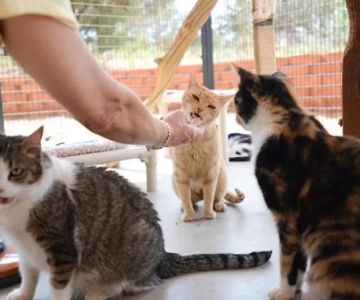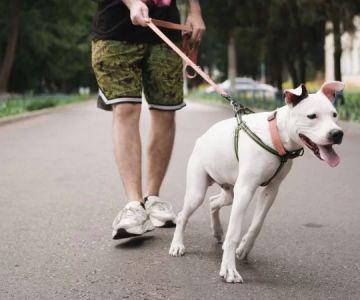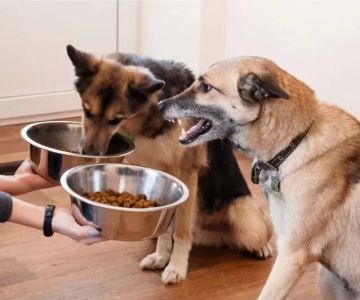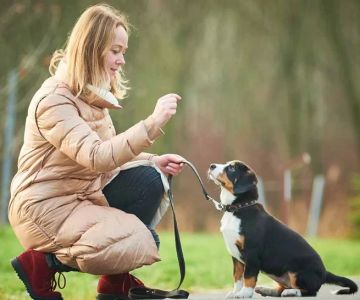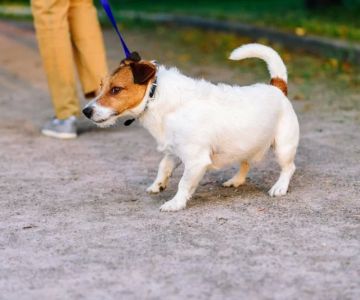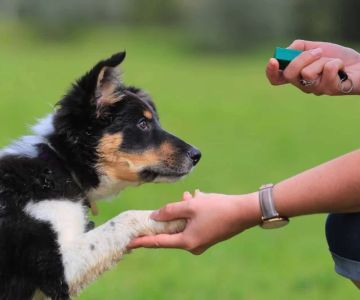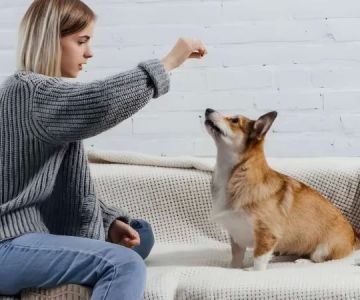Effective Tips for Socializing Your Puppy with Other Animals
As a new puppy parent, one of the most important things you'll want to focus on is socializing your puppy with other animals. This process helps ensure that your furry friend grows into a well-adjusted and confident dog, ready to face different situations with other pets. It's crucial for both their well-being and your peace of mind. Socializing your puppy early on not only prevents behavioral problems but also creates positive experiences with other animals. Here’s a step-by-step guide that will help you through the socialization process!
1. Start Early – The Puppy Socialization Window
The first few months of a puppy's life are critical for learning. Ideally, socialization should begin between 3 and 14 weeks of age. During this period, puppies are most open to new experiences and more adaptable to various environments, making it the best time to expose them to other animals. The earlier you start, the better the chances that your puppy will grow up to be friendly and well-behaved around other pets.
2. Introduce Your Puppy to Calm and Friendly Pets
When starting the process of socializing your puppy with other animals, choose calm, friendly pets for the initial interactions. It's important to ensure that the pets you introduce your puppy to are well-behaved and comfortable around young dogs. Avoid putting your puppy in a situation where they are overwhelmed by aggressive or overly energetic animals. Start with animals that are known for their friendly and patient demeanor.
3. Use Positive Reinforcement
Positive reinforcement is key when it comes to puppy training. When your puppy behaves well around another animal, reward them with praise or treats. This helps them associate good behavior with positive experiences. It’s essential to keep the interaction as positive as possible, as negative associations can make future interactions more difficult.
4. Keep the First Meetings Short and Sweet
During the initial few meetings, it's a good idea to keep interactions brief. Puppies have short attention spans, and the longer the encounter, the more likely it is that they could become anxious or overstimulated. Gradually increase the time spent with other animals as your puppy becomes more comfortable and confident.
5. Supervise Every Interaction
Always supervise your puppy’s interactions with other animals, particularly in the early stages of socialization. Even if the animals are generally friendly, puppies may react unpredictably, especially when they're nervous. By staying present during their interactions, you can ensure everyone is safe and stop any potential conflicts before they escalate.
6. Visit Different Environments
Socialization isn't just about interacting with other pets – it's also about exposing your puppy to different environments. Take your puppy to pet-friendly places like parks, pet stores, or even friends' houses with other animals. This helps them adjust to new surroundings and meet new pets, which is great for their development.
7. Practice Consistency
Consistency is vital when socializing your puppy with other animals. Frequent, positive exposure to animals and different environments is essential for building confidence. The more regular the interactions, the easier it will be for your puppy to learn how to behave properly in these situations.
8. Know When to Seek Professional Help
If your puppy exhibits fear, aggression, or excessive anxiety during interactions, it may be a good idea to consult a professional dog trainer or behaviorist. They can provide specialized training to help your puppy overcome their fears and learn how to interact positively with other animals.
9. Benefits of a Well-Socialized Puppy
A well-socialized puppy is more likely to grow up into a calm and balanced adult dog. Socialization also reduces the likelihood of behavioral issues like fear-based aggression or anxiety when faced with new animals. It makes living with other pets much easier, fostering a peaceful home environment for everyone.
Socializing your puppy with other animals may seem like a challenging task at first, but with patience, consistency, and the right approach, it will result in a more well-rounded and happy dog. By following these tips, you’re setting your puppy up for a lifetime of good relationships with their furry friends!
Looking for additional tips and support for your puppy’s growth? Visit us at Hidden Brook Veterinary for expert advice and care.



